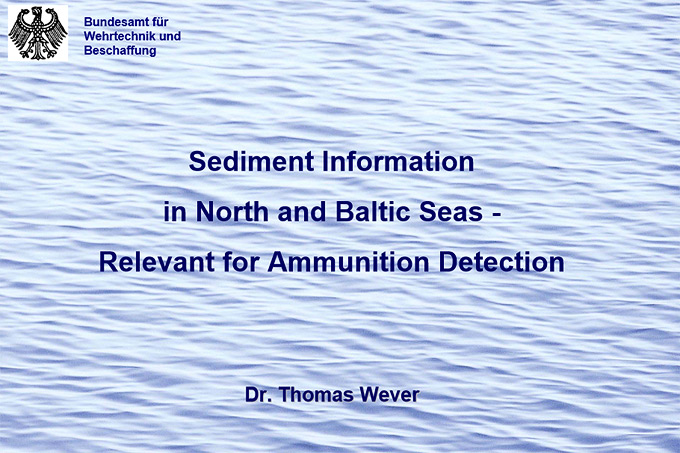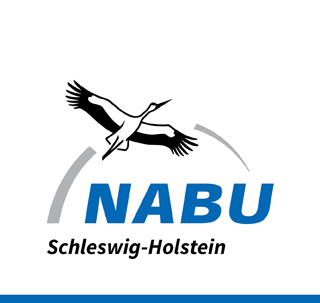Der NABU ist aktiv, um unser Naturerbe zu erhalten. Damit Sie auch weiterhin heimische Tiere und Pflanzen erleben können, braucht der NABU Ihre Unterstützung - am Besten noch heute!
Jetzt Mitglied werden!Sediment Information in North and Baltic Seas – Relevant for Ammunition Detection
MIREMAR - Conference
Thomas Wever, Federal Office of Defense Technology and Procurement, Koblenz / Germany
Abstract

MIREMAR Presentation Thomas Wever: Sediment Information in North and Baltic Seas – Relevant for Ammunition Detection
After WWs I / II ammunition was dumped at sea. Insufficient logs of positions and dumping en route prohibit a targeted removal and/or neutralisation. Instead, ammunition is often detected accidently.
For campaigns of ammunition removal the seafloor is a controlling factor: on soft sediment ammunition may have sunk into the sediment and cannot be located with modern side scan sonar systems. Sediment-penetrating sonar systems do not yet permit an area covering search. In contrast, on hard seafloor the ammunition may be detectable with side scan sonars.
If ammunition is located on -or accidently within- the seafloor, a most desired information concerns the status of the bombs, shells, and cartridges as this influences the decision of further procedures. In this presentation the data holdings of dbSEABED, a data system (data base, language, dictionary, …) is presented. Its versatility is demonstrated with 50,000 data from very sources and collected with various methods / techniques in the south-western Baltic Sea and North Sea. More than 30,000 sediment samples are described in the sw Baltic Sea and offer support for ammunition searches. “Doctrine”-based filtering of the information can reveal new aspects that are not shown in sediment maps.
The layout of dbSEABED allows to collect and make available all information that has been determined for sediment samples, such as sediment colour, carbon content, etc., and offers a quick and easy extension to new parameters. Depending on the data base contents clues on the status of ammunition and containers may be derived.
It is proposed to start an effort to collect all available information about sediment samples from the seafloor -especially geo-chemical data- in one data base such as dbSEABED. This will allow better risk estimates and support future decisions of ammunition handling (recovery or detonation).
Contact
Thomas Wever
Federal Office of Defense Technology and Procurement
Postfach 30 01 65
56057 Koblenz / Germany
Thomas.Wever(at)bwb.org

